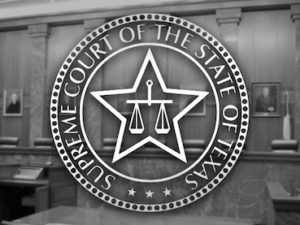
Texas Supreme Court Warns that Banking Customers Must Monitor Their Accounts in the Face of Identity Theft
In a decision handed down on December 21, 2018 called Compass Bank v. Calleja-Ahedo, the Texas Supreme Court made clear to Texans that they have a duty to examine bank statements to determine whether payments were authorized and must notify their bank of any unauthorized payments. While many banks today are doing their best to determine when fraud occurs in real-time, the Court has left no doubt that it remains the customer’s obligation to spot unauthorized payments.
Francisco Calleja-Ahedo (“Calleja”) opened an account with Compass Bank (the “Bank”) and directed it to send statements to his brother’s address in The Woodlands, Texas. The Bank complied and sent regular monthly statements from 2008 until June 2012. At the end of May 2012, the account had a balance of $42,688.94.
In June 2012, an unknown person identified himself as Calleja and instructed the Bank to change the address on file to a California address, later to a different California address, and eventually to two Georgia addresses. The imposter ordered checks and issued a forged check in the amount of $38,700, which the Bank honored. He later emptied the entire account. More than 18 months later, in January 2014, Calleja called and visited the Bank and signed an affidavit of unauthorized charges. Calleja sued the Bank when it refused to pay for the withdrawals.
At trial, the Bank presented evidence that Calleja never complained about his brother’s non-receipt of Bank statements, that Calleja could have picked up copies of his statements at any branch office, that he could have ordered statements or reviewed them online, and that all the statements have a 1-800 number that he could have called to get copies of missing statements or to set up online banking for free.
The Texas Supreme Court held that Texas law shields the Bank from liability for the losses Calleja’s account sustained due to fraud. Even though the Bank sent statements to the imposter’s address, it made them available to Calleja by other means, which triggered his duty to promptly examine the statements and report the theft.
The general rule is that a bank may only pay out money in accordance with a customer’s order, and the bank bears the burden of demonstrating proper payment. However, an exception in the law states that if a bank makes a statement available to the customer, he must exercise reasonable promptness in examining the statement or the items to determine whether any payment was not authorized. If the customer should have reasonably discovered the unauthorized payment, he must promptly notify the bank. If the customer fails to comply with these duties, he cannot recoup his losses due to an unauthorized signature or alteration. A customer who does not discover and report to the bank his unauthorized signature within one year after the statement or items are made available is precluded from asserting a claim against the bank.
The Court held that a Bank “makes [a statement] available” by putting the statements at the customer’s disposal or enabling the customer to access or obtain the statement without sending it in the mail. In this case, the Court decided that the Bank made the statements available to Calleja because he could have called the Bank to ask about his statements, he could have requested copies of any of the statements by phone, and he could have obtained copies by visiting any Bank branch. Additionally, he could have received copies of the statements or their equivalent by setting up online banking, which the Bank offered for free. Calleja had every reason to notice that the paper statements were no longer arriving, and he had several avenues of inquiry available to him, yet he made no effort to monitor his account until many months after the imposter drained it.
This case demonstrates that while Texas banks maintain a duty to make payments in good faith, observing the reasonable commercial standards of fair dealing, Texas residents must monitor and scrutinize their bank statements to determine whether fraud or identity theft has occurred. They should follow that investigation up with a phone call to the bank to discuss the potential fraud.
1 Compass Bank v. Calleja-Ahedo, 2018 WL 6713245, at *1 (Tex. Dec. 21, 2018).
2 See Tex. Bus. & Com. Code § 4.406(c).


